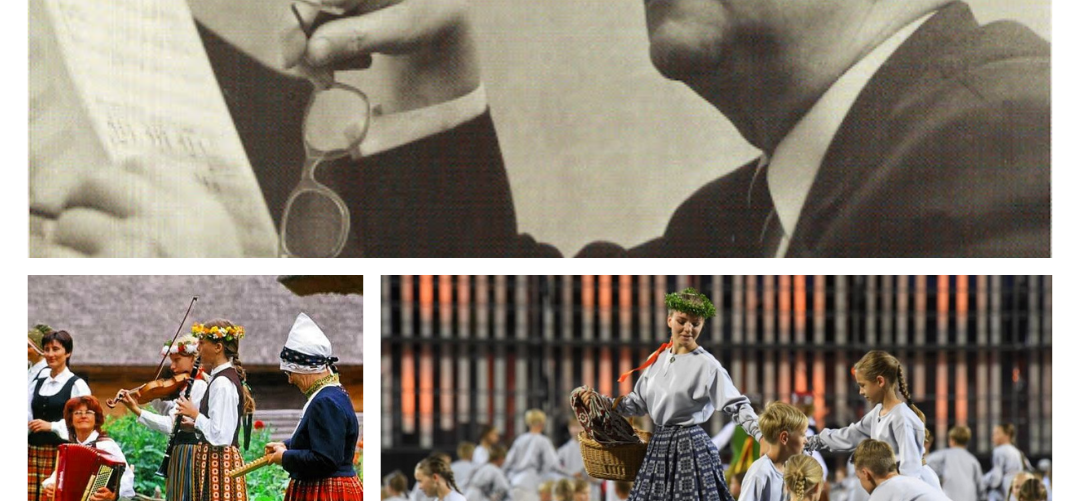#2 Jānis Ivanovs
Last time we talked about Hachadū’s attachment to the music of his native Armenia, but in fact, this kind of national feeling is not uncommon among Eastern European musicians. Jānis Ivanovs, a Latvian-born musician, is the subject of this article.
Ivanovs may be a bit of a stranger to the Chinese-speaking world, but he was one of the most celebrated symphonic musicians in Eastern Europe during the pre-Soviet period. He graduated from the Latvian State Conservatory of Music in 1931 and later became a professor there, publishing his chamber music, symphonic poetry and quartets. The local critic Margers Zarins once described Ivanovs’s music as “hysterical, yet purifying” in the manner of an ancient Greek tragedy, not least because he was inspired by the folk music of eastern Latvia. Those folk songs are mainly in minor keys, with hand and vocal chanting on the kokles, a common instrument of the region, playing stories of human life, nature and ancient mythology, allowing Ivanovs to capture the melodic quality of musical theatre.
For a taste of the dramatic emotion in Ivanovs’ work, see the 1952 Cello Concerto in B minor (Latvian National Symphony Orchestra performance):
The cello melody is repeated in counterpoint to the orchestra, and the melody in a minor key rises and falls in a roundabout way to create a more ethereal atmosphere.
Ivanovs was once highly regarded by the government in the pre-Soviet era and was elected ‘People’s Artist’ in 1965. However, the ongoing tug-of-war between the Latvian people and the Soviet government at the time has led to controversy over Ivanovs’ achievements there. He suffered the same fate as Khachadoum, as the government’s control of ‘formalist’ music suddenly turned his critics against him, until the political tide changed again and he became the most sought-after musician in the country. Even when Latvia became independent from the Soviet Union, their orchestras did not let the political events of the past affect their admiration for Ivanovs, repeatedly performing his music in public, demonstrating his unique position in the Latvian music scene.


 繁體中文
繁體中文